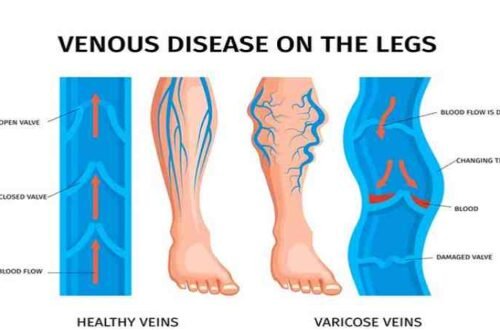TikTok, the short-form video platform that has taken the world by storm, continues to grow rapidly across Europe. With millions of users and viral content sweeping across the continent, it has cemented its place as a social media giant. However, this growth has not come without challenges, particularly as European regulators sharpen their focus on tech platforms. TikTok’s operations in Europe, particularly in markets like Norway, are becoming a focal point for lawmakers, tech enthusiasts, and users alike. Tiktok Europe Norwaysawerstechcrunch
In this article, we will explore TikTok’s rise in Europe, the regulatory hurdles it faces, and how these challenges are shaping its future. From data privacy issues to the push for greater accountability, TikTok’s journey in Europe highlights the complexities of operating a global platform in an increasingly regulated market.
TikTok’s Meteoric Rise in Europe
TikTok’s popularity has soared globally, but Europe has become one of its most crucial markets. The platform, owned by Chinese tech company ByteDance, has attracted millions of users across countries like the United Kingdom, France, Germany, and Norway. Tiktok Europe Norwaysawerstechcrunch
According to recent reports, TikTok boasts over 150 million active monthly users in Europe. The app’s combination of viral challenges, creative content, and personalized algorithms makes it particularly appealing to younger audiences, who use it as a primary source of entertainment, news, and social interaction. Unlike other social platforms, TikTok’s unique video format encourages creativity, allowing users to produce and share content quickly.
This growth hasn’t gone unnoticed. Tech enthusiasts and analysts alike recognize TikTok’s dominance in the European market as a major disruptor in the digital landscape. Brands and businesses are flocking to the platform to engage with users in innovative ways, creating a unique ecosystem of advertisers, content creators, and users.
Regulatory Challenges: The European Landscape
As TikTok continues its ascent, it faces increasing scrutiny from European regulators. The European Union (EU) is known for its stringent data privacy laws and regulatory oversight of tech companies, making the continent a challenging environment for social media platforms.
GDPR and Data Privacy Concerns
One of the primary regulatory concerns for TikTok in Europe is compliance with the General Data Protection Regulation (GDPR), a comprehensive data privacy law that governs how companies handle personal data. The GDPR mandates that companies obtain explicit consent from users to collect, store, and process their data. Violating this regulation can result in hefty fines, sometimes up to 4% of a company’s global annual revenue.
TikTok has already faced questions about how it collects and uses data, particularly given its Chinese ownership. Concerns about whether European users’ data is being shared with the Chinese government have made TikTok a subject of investigation. In Norway, the Norwegian Data Protection Authority (DPA) raised concerns about TikTok’s data privacy practices, specifically focusing on how the platform handles children’s data. With the app’s younger user base, European regulators are demanding more transparency and accountability. Tiktok Europe Norwaysawerstechcrunch
Digital Markets Act and Digital Services Act
In addition to GDPR, TikTok must navigate the EU’s Digital Markets Act (DMA) and Digital Services Act (DSA), two landmark pieces of legislation aimed at increasing competition and transparency in digital markets. These laws place new responsibilities on platforms like TikTok to protect users, prevent illegal content, and ensure fair competition.
The DMA specifically targets “gatekeepers,” large digital platforms that dominate the market, while the DSA requires platforms to remove illegal content quickly and implement robust content moderation policies. While TikTok isn’t classified as a gatekeeper yet, its rapid growth puts it on regulators’ radars, and future scrutiny could affect its operations in Europe.
Norway’s Role in TikTok’s Regulatory Journey
Among the European nations paying close attention to TikTok’s growth, Norway has emerged as a key player. Norwegian authorities have expressed concerns about the platform’s influence, particularly on younger audiences, as well as its adherence to privacy regulations.
In 2023, Norway’s Consumer Council raised questions about TikTok’s compliance with EU regulations. Their primary concern focused on the app’s data collection methods, particularly its treatment of children’s data and the level of transparency provided to users about how their data is handled. In response, Norway’s Data Protection Authority initiated a series of investigations into TikTok’s operations, signaling the country’s growing role in holding tech companies accountable.
Norway’s regulatory approach serves as a bellwether for how other European nations may interact with TikTok in the coming years. As Norway continues to scrutinize TikTok, its findings could influence regulatory actions across Europe, particularly if non-compliance issues are uncovered.
TikTok’s Strategy for Growth Amid Regulatory Scrutiny
Despite the regulatory challenges, TikTok continues to expand its presence across Europe. The company has made significant investments in the region, opening new offices and data centers to comply with EU regulations. In 2023, TikTok announced plans to open its first European data center in Ireland, a move designed to address concerns about data security and provide European regulators with greater oversight.Tiktok Europe Norwaysawerstechcrunch
Localized Content and Partnerships
One of the key strategies that TikTok has employed in Europe is the localization of content. By partnering with local creators, businesses, and organizations, TikTok tailors its content to fit the cultural and linguistic preferences of different European markets. For instance, in Norway, TikTok has partnered with local influencers and brands to create content that resonates with Norwegian users, helping the platform strengthen its foothold in the market.
TikTok has also expanded its efforts to promote educational content and digital literacy in Europe. Through partnerships with educational institutions and non-profits, TikTok seeks to position itself as a positive force in the digital landscape, promoting creativity and learning among its users.
Addressing Misinformation and Content Moderation
As part of its efforts to comply with the Digital Services Act, TikTok has taken steps to improve its content moderation and tackle misinformation. In Europe, the platform has established dedicated teams to monitor and remove illegal or harmful content, ranging from misinformation to hate speech.
In Norway, TikTok has worked closely with local organizations to tackle issues such as online bullying and digital literacy. These efforts are aimed at building trust among regulators and users alike, ensuring that the platform remains a safe space for creativity and interaction. Tiktok Europe Norwaysawerstechcrunch
Challenges Ahead: Navigating an Evolving Regulatory Landscape
While TikTok continues to grow in Europe, the platform faces significant challenges ahead. European regulators are expected to continue scrutinizing TikTok’s operations, particularly as new laws and policies are implemented. Tiktok Europe Norwaysawerstechcrunch
Potential Impact of the AI Act
One potential hurdle on the horizon is the European AI Act, a new piece of legislation aimed at regulating the use of artificial intelligence in various industries, including social media. Given TikTok’s heavy reliance on AI algorithms to curate and recommend content, the AI Act could impose additional requirements on how the platform uses machine learning to manage its feeds.
TikTok may need to be more transparent about how its algorithms work, particularly in relation to content curation and personalization. European regulators are likely to demand that TikTok provides more control to users over the type of content they see, ensuring that AI-driven recommendations do not lead to harmful or misleading content.
The Future of Data Privacy
Data privacy will continue to be a hot topic for TikTok in Europe, particularly as the platform expands its user base. The opening of the Irish data center is a step in the right direction, but European regulators will likely continue to push for more stringent data protection measures.
TikTok will need to invest heavily in compliance and transparency efforts to ensure that it avoids hefty fines or operational restrictions. TikTok must maintain the trust of European users while satisfying regulatory demands to maintain its competitive edge.
Conclusion: Balancing Growth and Responsibility
TikTok’s journey in Europe is a testament to the platform’s global appeal and adaptability. However, as TikTok grows, so too does the level of scrutiny from European regulators. From GDPR compliance to the demands of the Digital Markets Act and Digital Services Act, TikTok must navigate a complex and evolving regulatory landscape to continue its growth.
In markets like Norway, TikTok faces both opportunities and challenges. The platform’s ability to localize content, build partnerships, and improve transparency will be key to maintaining its success in Europe. At the same time, TikTok must address growing concerns around data privacy, content moderation, and AI-driven recommendations to ensure that it remains compliant with European regulations.
As TikTok continues to evolve, it must strike a careful balance between growth and responsibility, ensuring that it remains a platform for creativity while respecting the regulatory frameworks of its European markets. Tiktok Europe Norwaysawerstechcrunch





